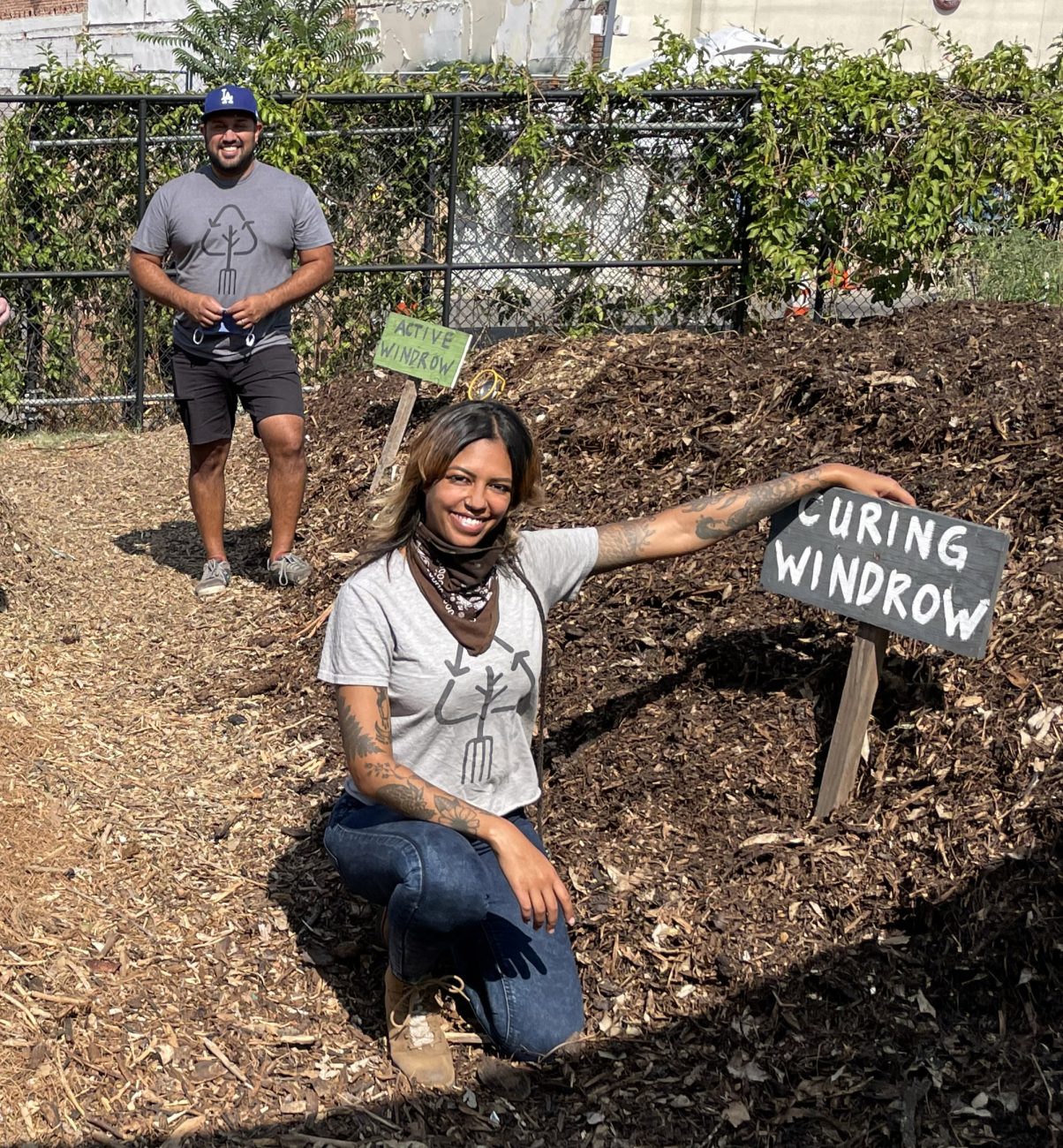Community Composting for Green Spaces Grant Program
The Community Composting for Green Spaces Grant Program aims to increase the number and capacity of small-scale composting programs in green spaces of disadvantaged and low-income communities.

This grant program seeks to:
- Understand barriers to starting and managing locally-based composting programs.
- Provide resources for new and existing programs.
- Identify qualities of successful programs.
- Provide models for effective and sustainable community composting operations.
The program will help:
- Lower greenhouse gas emissions by increasing the number and efficiency of community composting sites throughout the state.
- Promote community activities that increase organic waste diversion in disadvantaged and low-income communities.
- Reduce food and organic waste disposed in landfills.
- Provide compost to:
- Enhance community gardens
- Grow fresh produce
- Support neighborhood climate adaptation projects
Eligibility
Eligible Applicants Include:
- Local governments.
- Cities, counties, and cities and counties.
- Regional or local sanitation agencies, waste agencies, or Joint Powers Authorities.
- Special Districts.
- Defined as entities subject to the Minimum Audit Requirements and Reporting Guidelines for California Special Districts.
- Including, but not limited to, Resource Conservation Districts, Parks Districts, or Sanitation District.
- Nonprofit organizations (except private schools).
- Nonprofit organizations must be registered with the federal government under 501(c)3, (c)4, (c)6 or (c)10 of the Internal Revenue Code and must be registered in the State of California with the Department of Justice.
- State agencies (including offices, departments, bureaus, and boards).
- The University of California, the California State University, or California Community Colleges.
- Qualifying Tribal Entities.
- Qualifying Tribal Entity is defined as a tribe, band, nation or other organized group or community, residing within the borders of California, which:
- Is recognized for special programs and services provided by the United States because of the status of its members as Native Americans; or
- Can establish that it is a government entity and meets the criteria of the grant program.
- Qualifying Tribal Entity is defined as a tribe, band, nation or other organized group or community, residing within the borders of California, which:
Eligible Costs
Review eligible costs in current cycle page.
Funding
To be determined in the state budget.
For more information contact, GHGreductions@calrecycle.ca.gov.
California Climate Investments
This program is part of California Climate Investments, a statewide program that puts billions of Cap-and-Trade dollars to work reducing greenhouse gas emissions, strengthening the economy, and improving public health and the environment—particularly in disadvantaged and low-income communities. The Cap-and-Trade program also creates a financial incentive for industries to invest in clean technologies and develop innovative ways to reduce pollution. California Climate Investment projects include affordable housing, renewable energy, public transportation, zero-emission vehicles, environmental restoration, more sustainable agriculture, recycling and much more.
For more information, visit California Climate Investments.
Current Grant Cycle
Application materials for FY 2021-22 Cycle 3 were due January 23, 2024.
Upcoming Grant Cycles
No upcoming grant cycles at this time.
How to Apply
Watch for the Notice of Funds Available (NOFA) on either of these two web pages:
Online Applications
CalRecycle grant applications are submitted online through the CalRecycle Grants Management System (GMS).
Performance Table Instructional Video
Tutorial video (YouTube, 00:04:17, Transcript) – provides help to grantees for completing the Performance Table Template for reporting.
